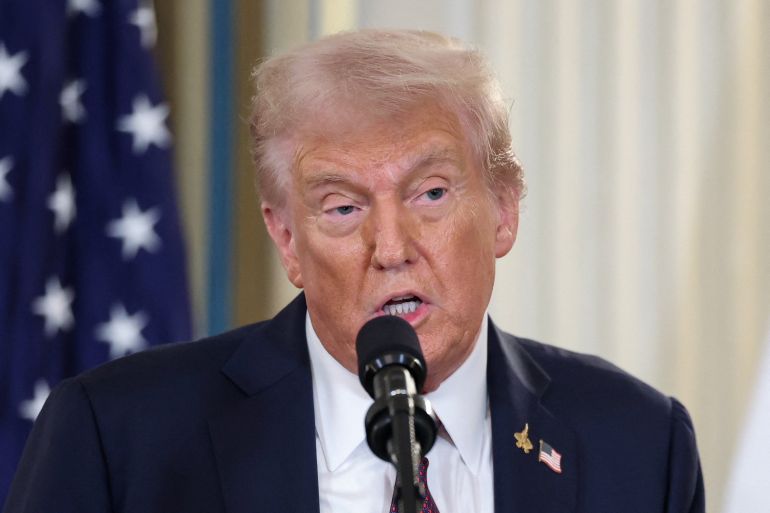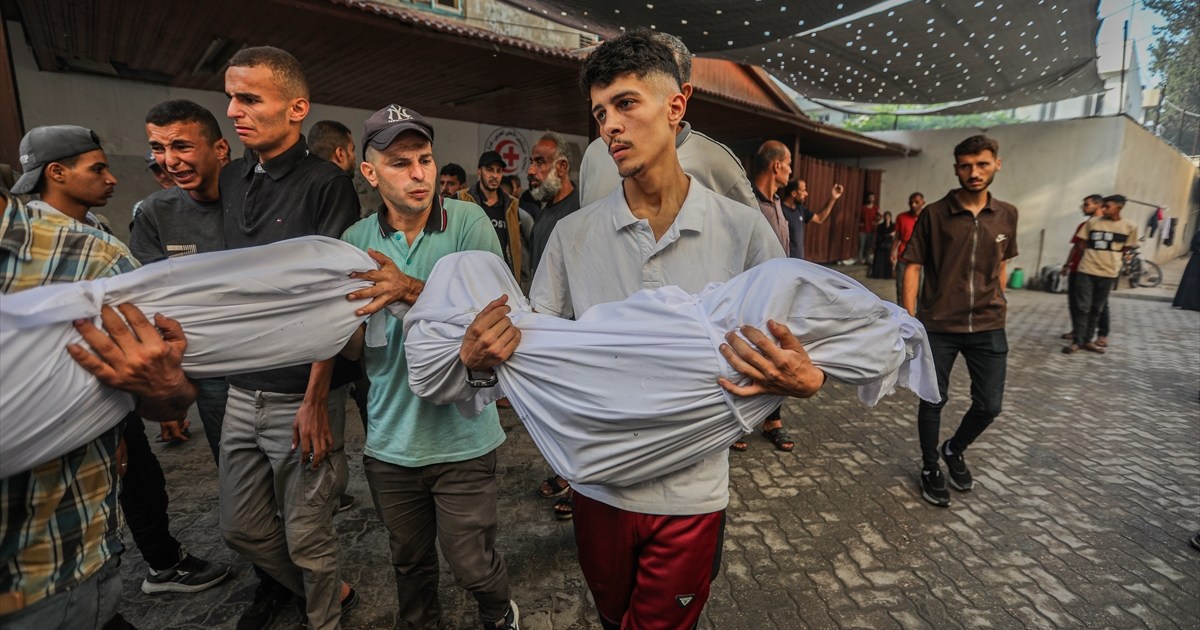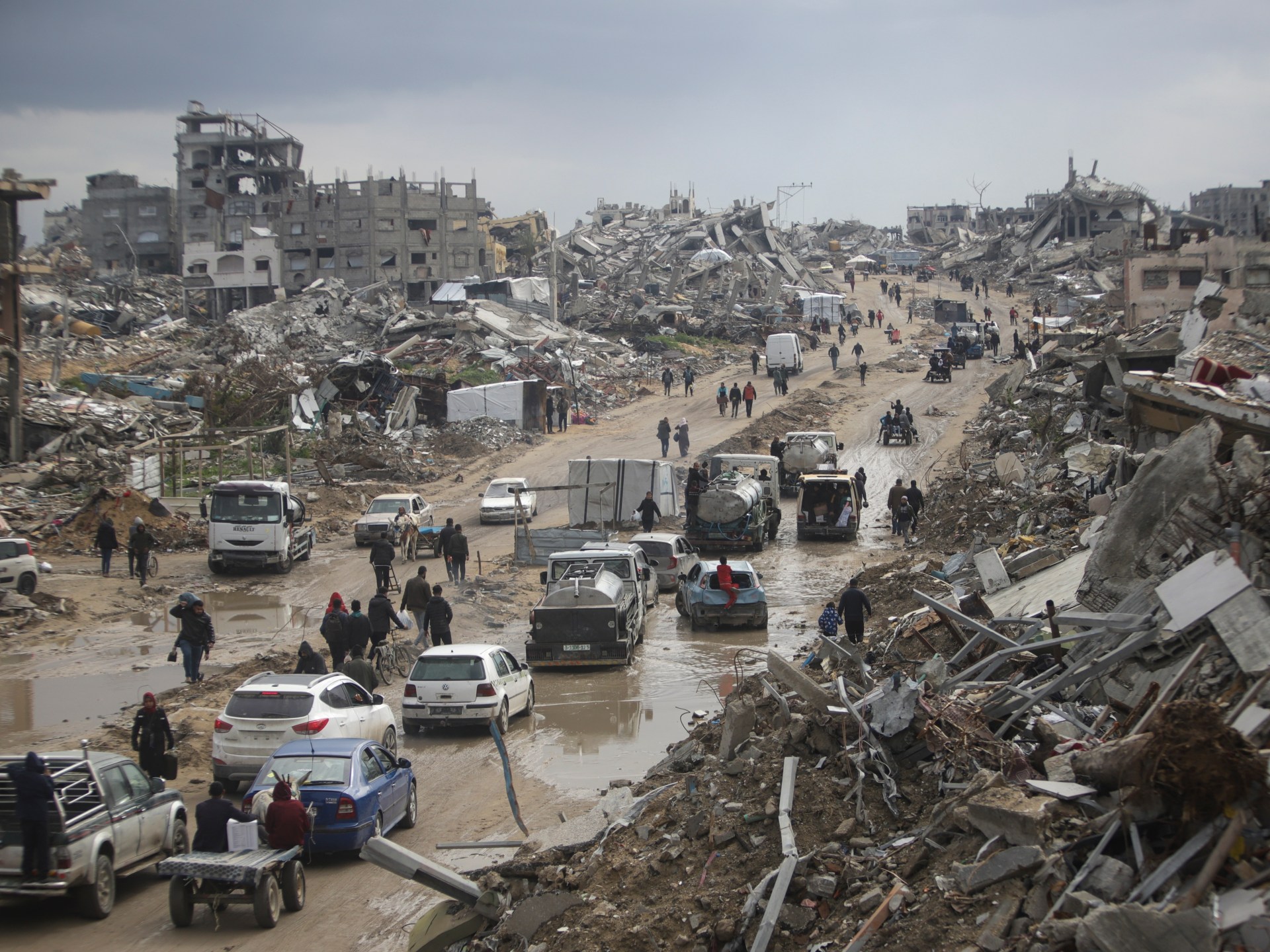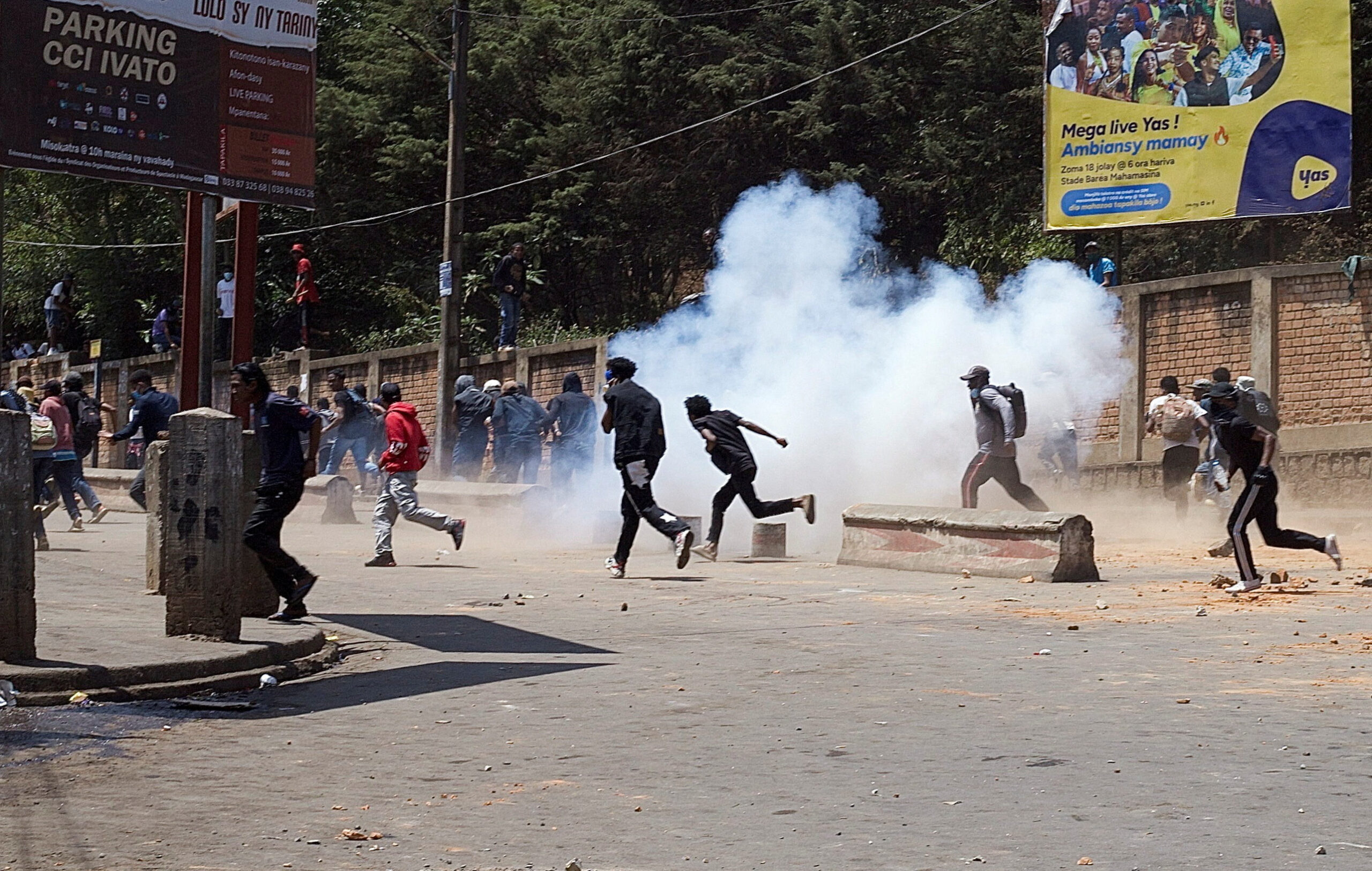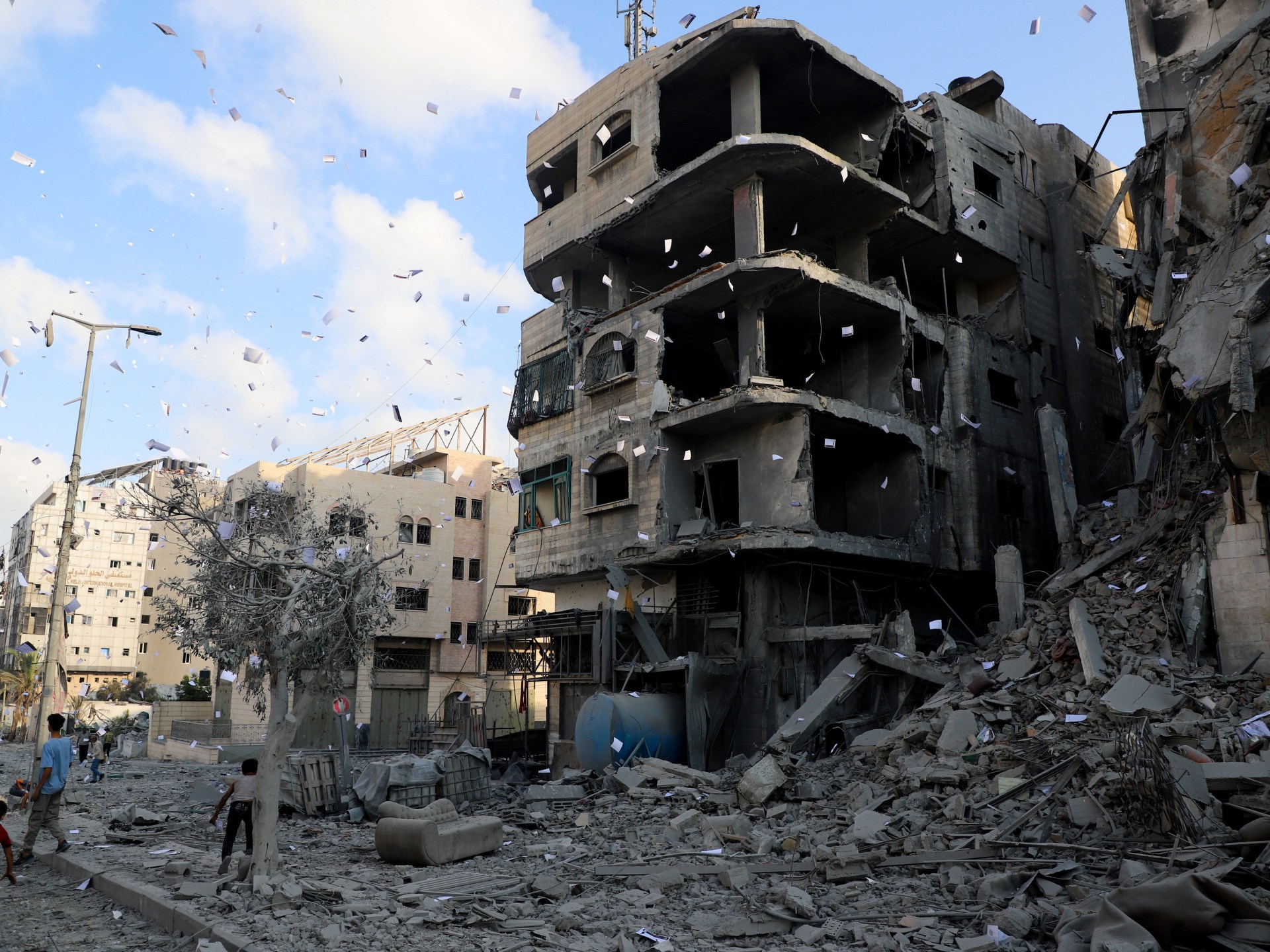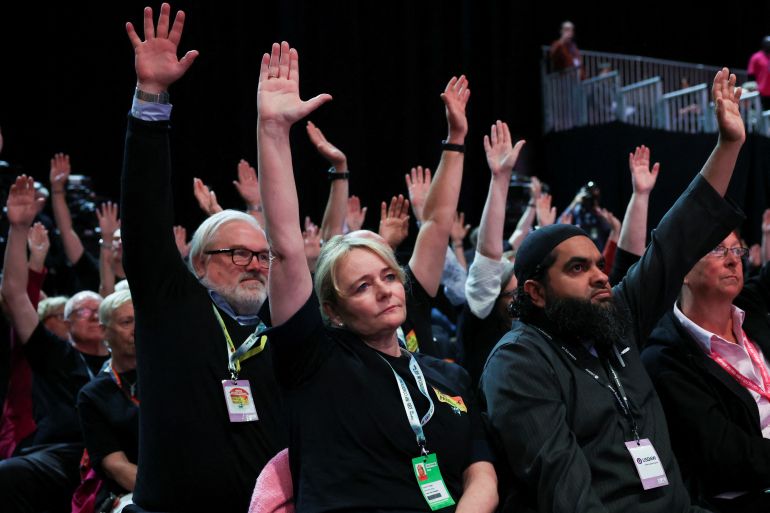US President Donald Trump said the leaders were “close” to achieving peace in the Middle East after meeting with Israeli Prime Minister Benjamin Netanyahu on Monday.
“At the very least, at a minimum very, very close”, Trump said during a joint news conference at the White House.
He laid out his new 20-point strategy to put an end to Israel’s occupation of Gaza and force Israeli prisoners to leave Israeli holds. According to diplomatic sources, the negotiations team for Trump are examining the war plan.
Here are the key takeaways:
Trump applauds Netanyahu’s willingness to follow through on the agreement.
“Thank you very much, everyone. This is a big, big day, a beautiful day, potentially one of the great days ever in civilisation”, Trump said as the news conference started.
“And I’m not just talking about Gaza,” I said. We’re talking about Gaza one thing, but it extends far beyond that. The whole deal, everything getting solved. He continued, “Peace in the Middle East is what it is.”
Trump stated that “Prime Minister Netanyahu and I recently wrapped up a significant meeting on a number of crucial issues, including Iran, trade, the expansion of the Abraham Accords, and, most importantly, we discussed ending the conflict in Gaza. However, this is only one component of the larger picture, which is peace in the Middle East, and let’s call it Middle Eastern eternal peace,”
He thanked Netanyahu and leaders from the Middle East, as well as Turkiye, Indonesia, Pakistan and Europe.
Trump makes his strategy public.
Trump introduced his plan to end the war, noting that many countries had contributed to its development.
Trump stated that “I’m formally releasing our principles for peace, which people have really liked, I must say, this afternoon after extensive consultation with our friends and partners throughout the region.”
He then went on to list some of the plan’s key commitments:
“Under the plan, Arab and Muslim countries have committed, and in writing, in many cases … to demilitarise Gaza, and that’s quickly. Eliminate Hamas and all other terrorist organizations’ military prowess. “Do that right away,” he said.
“We’re relying on the countries… , to deal with Hamas. And Hamas seems to want to accomplish this as well. That is beneficial, he continued.
“The United States will establish a dialogue between Israel and the Palestinians to agree on a political horizon for PEACEFUL and prosperous co-existence”. https://t.co/Vk7K5YNIhj
He then expanded on dismantling Hamas’s operational capacity.
“And destroy all terrorist infrastructure, including production facilities, weapons, and tunnels.” Numerous production facilities are being destroyed by us. It’ll also help train local police forces in the areas that we’re discussing, right now, in particular in and around Gaza, working with the new transitional authority in Gaza”.
Trump emphasized the need for collaboration when he referred to the roles of Arab and Muslim countries.
“Arab and Muslim countries must have the opportunity to fulfill these commitments in terms of dealing with Hamas. They have to deal with them because they were the one group that we have not dealt with. I’ve never dealt with them.
However, Hamas will be dealt with by Muslim and Arab countries. And I believe they’ve already been there. They probably understand each other, in my opinion. They may not have mentioned that, but I would assume they do. Otherwise, they wouldn’t have gone as far as they’ve gone”.
Governing Gaza
After the end of the war, a “technocratic” leadership of Palestinians, unaffiliated with any political party, will rule Gaza on a daily basis in accordance with Trump’s plan.
But that Palestinian leadership will be selected not by the Palestinian people, but by a new international body that would oversee the implementation of the peace plan. Trump claimed that the “board of peace” would be responsible for bringing together key regional and international leaders in order to ensure the success of the deal.
He claimed that he would personally lead the oversight body.
“It would be headed by a gentleman known as President Donald J Trump of the United States. Trump said, “I want that, there is some more work to do, but it’s so important that I’m willing to do it.”
Trump stated that there would also be other leaders in the body.
“We’ll do it right … We’ll have a board. Former UK Prime Minister Tony Blair is one of the candidates to join the board. A good, excellent man. And some others”.
Trump continued, “Hamas and other terrorist groups will not play a role in the board.”
security and long-term rule in Gaza
Trump’s plan speaks of an international stabilisation force (ISF) that the US and its Arab and other partners will set up to oversee the security of Gaza after Hamas is demilitarised.
The long-term internal security solution will be this force, according to the statement. Along with newly trained Palestinian police forces, the ISF will collaborate with Israel and Egypt to secure border areas, according to the plan.
But Netanyahu, standing next to Trump at the news conference, suggested that Israel has other ideas.
Netanyahu stated that “Israel will bear security responsibility, including a security perimeter, for the foreseeable future”. Gaza will have a peaceful civilian administration led by those who are “sincerely committed to peace with Israel” rather than by Hamas or the Palestinian Authority.
Netanyahu’s comments are also at odds with Trump’s plan on Gaza’s long-term governance. According to the plan, if Gaza’s government implements a number of reforms, the Palestinian Authority can eventually take control of it.
Hamas must still intervene.
“So now, it’s time for Hamas to accept the terms of the plan that we’ve put forward today. I’d like to add that over 20 000 people have been killed in Hamas, which is a different Hamas than what we were dealing with, Trump said.
“Their leadership has been murdered three times.” So, you’re really dealing with different people than we’ve been dealing with over the last four years, five years”, he added.
This proposal involves “the surrender for Hamas,” according to Marwan Bishara of Al Jazeera.
Hamas will interpret Trump’s plan as an ultimatum to surrender, he said, “or else the US will back its best friend, Israel.”
Now, they could be convinced that maybe they should surrender for the better, that maybe at least after three years of genocide and of incessant bombardment … that maybe that bloodbath will stop, “Bishara explained.
This is no less than a surrender, Bishara said, “but when the entire thing is based on the idea that there are terrorist networks in Gaza, that there are terrorists there, and that this deal will ensure that they disarm and that the territory they once sort of governed under occupation will be disarmed.”

Trump’s message to Palestinians
Trump stated that the plan was intended to give Palestinians the opportunity to assume responsibility for their future.
There are also many Palestinians who want to live in peace, they say. I’ve seen so many of them, and they have support, “he said.
We’re giving them responsibility for their destiny, so I urge the Palestinians to do that. We’re enforcing our responsibility for their destiny, [to] fully condemn and demonize terrorism and help them find a brighter future. They don’t want the life that they’ve had. They have lived in harsh conditions with Hamas, he continued.
They will only be held accountable if the Palestinian Authority doesn’t carry out the reforms I promised in my peace plan for 2020.
Tareq Abu Azzoum, reporting from Gaza, said that people remained sceptical about the success of this plan.
Many Palestinians think that Hamas’ current demands for demilitarization and retribution could be rejected, he said.
People are anticipating a cessation of hostilities that would lead to the Israeli military leaving Gaza, the release of Palestinian prisoners, and a guarantee that hostilities would not resume, he continued.

If Hamas rejects the deal, the US will support Israel by saying, “Do what you have to do.”
Trump also stressed the need to confront Hamas directly and the possibility that Hamas might reject the proposal.
” And, if Hamas rejects the deal, which is always possible… as you know, Bibi, you’d have our full backing to do what you would have to do, “Trump said, using Netanyahu’s nickname.
According to Al Jazeera’s Mike Hanna, who is based in New York, “Hamas has not yet agreed to this plan.”
If Hamas rejects this 20-point plan, he continued, “This basically gives me the green light to intensify Israeli action in Gaza.”
‘ I support your plan, ‘ Netanyahu said
I back your strategy, which accomplishes our war objectives, to end the conflict in Gaza. According to Netanyahu, it will free all of Israel’s hostages, end Hamas’s military might and political dominance, and prevent Gaza from ever becoming a threat to Israel.
Al Jazeera’s James Bays, reporting from the United Nations, questioned Netanyahu’s intentions.
Netanyahu has welcomed this, but does he really believe it? He has been “for some time” not being ready to put an end to the war or allow aid to enter, Bags said.
” The plan says there should be a credible pathway to Palestinian statehood, but that’s something Netanyahu has fought against his entire political career. “
So, I believe it will benefit the people of Gaza in the short run, but there are many questions about how all of this will turn out and potential obstacles, Bags continued.
Israel will “finish the job,” according to the statement.
Speaking about the sequence of actions that would follow agreement on the plan, Netanyahu outlined a phased approach, linking withdrawals, captives ‘ releases and the role of an international oversight body.
The first step will be a modest withdrawal, followed by the release of all our hostages within 72 hours, Mr. President, if Hamas accepts your plan. An international body established to fully demilitarize Hamas and demilitize Gaza will be the next step.
” Now, if this international body succeeds, we will have permanently ended the war. Israel will continue to withdraw in response to the extent of demilitarization and disarmament, but it will remain within the security perimeter.
If the plan was rejected or undermined, Netanyahu warned of the possibility.
” But if Hamas rejects your plan, Mr President, or if they supposedly accept it and then basically do everything to counter it, then Israel will finish the job by itself. “
It can be done the easy way or the difficult way, but it will be done. The simple method is what we like, but it must be carried out.
” There are no guarantees here to protect Palestinian interests, “Phyllis Bennis, a fellow at the Washington, DC-based Institute for Policy Studies, told Al Jazeera.
There is every indication that if Israel decides to return to the war once its hostages are freed, they will say, “We are just not getting the kind of cooperation that we expected, so we gotta go back to war, Mr. President,” she continued.

